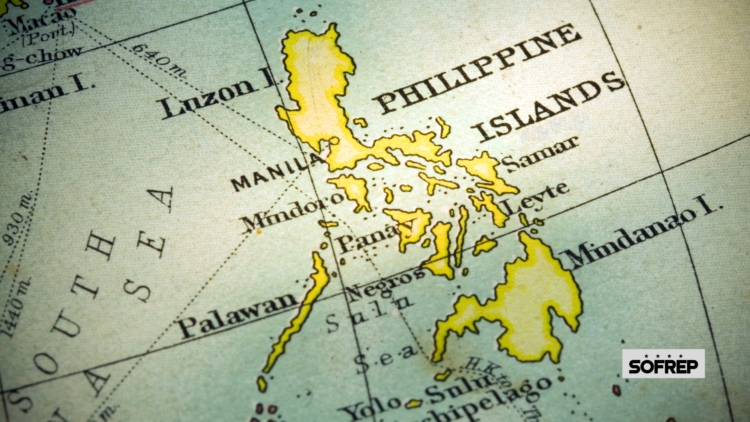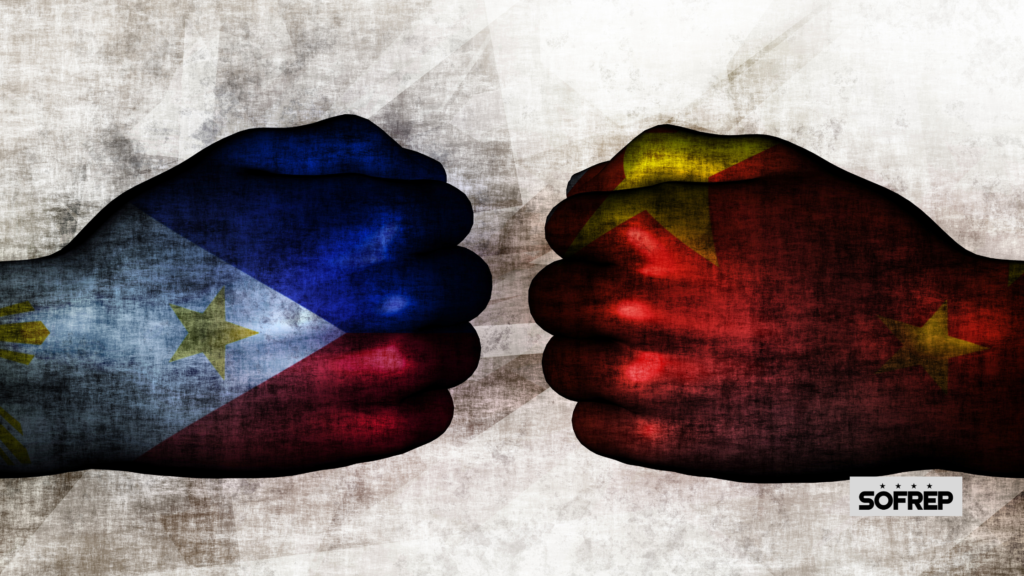One of the most well-known is Clark Air Base, built in 1903 and served as a major hub of air operations during World War II. It was also a critical logistics center after the war before it eventually closed down in 1991. While Clark Air Base is no longer operational today, its legacy still lives on thanks to its importance during some of history’s most pivotal moments. This includes being a launchpad for Operation Desert Storm in 1991 and acting as a staging ground for US forces on their way to Iraq and Afghanistan during Operation Iraqi Freedom and Operation Enduring Freedom, respectively.

Recently, The Philippines’ strategic precedence has been thrust back into focus due to rising tensions between China and other nations within Asia-Pacific waters. As such, there have been several high-profile announcements from various Western militaries that they are looking at sites within The Philippines in order to build out additional defenses against potential threats from China’s expansion into the region.
For example, one notable announcement came from Australia, revealing that they were looking to expand their presence by building out two new facilities at Basa Air Base near Manila, which would primarily be used as training locations for personnel deployed abroad.
Due to its geographical proximity to many conflict zones around Asia-Pacific waters, The Philippines continues to hold significant importance when it comes to military deployments and operations abroad; particularly when it comes to providing supplies or logistical support near where troops may be deployed. To that end, various nations have been observed making use of civilian ports throughout The Philippines to move personnel or resources from one area of operation to another; some even use these ports as temporary service hubs for their own military vessels.
Ultimately then, it is clear that The Philippines holds immense value when it comes to militaries across multiple countries looking at expanding their reach or capabilities throughout Asia-Pacific waters — something that had remained unchanged since World War II when the government first served as an integral part of various Allied campaigns against Japan. As such tensions continue between different nations in this region heated up over time, expect The Philippines’ role in global security affairs will only become more pronounced.
The Philippines’ Proximity to China Holds Military Advantages
The Philippines has always been a strategic location for countries looking to monitor activity in the region, and its close proximity to China makes that even more pressing. The fact that it is located between two major bodies of water — the South China Sea and the Philippine Sea — means that American assets stationed there would have ready access to mainland China. This makes it an ideal location for keeping tabs on Chinese military maneuvers, allowing us to stay one step ahead in the ongoing tug-of-war for dominance in the region. With the growing intensity of their presence in these waters, having a foothold near their territory gives us an invaluable advantage.
The Philippines’ proximity to China makes it an ideal location for monitoring Chinese activity, and the United States has utilized this strategic position for decades. Located between two significant bodies of water – the South China Sea and the Philippine Sea – the Philippines is situated in a place that offers ready access to mainland China, allowing US forces to remain informed and prepared as tensions escalate in the region.
Recent research conducted by The Center for Strategic International Studies (CSIS) highlights how this location is an essential point of observation regarding Chinese military movements and maneuvers. According to their analysis, “the South China Sea provides a key vantage point from which US forces can monitor Chinese naval activities and counter Beijing’s aggressive maritime activities.” This means that presence near these waters gives them an essential advantage in understanding their adversaries’ actions.
In addition to monitoring Chinese activity, the ease of access provided by the Philippines’ location also allows US forces to conduct other operations more efficiently. For example, joint military exercises with allies such as Australia, France, India, and Japan can be conducted much more quickly than if they had to travel long distances from other locations. Furthermore, these states’ combined presence also helps act as a deterrent against Chinese aggression in the region.
Several American military bases along both sides of the Philippine archipelago contribute significantly to its capacity as a monitoring site. These facilities allow marines stationed there quicker access points into the South China Sea while strategically placed airstrips facilitate rapid deployment of airpower across multiple locations if need be. In addition, numerous bulk fuel storage tanks at these bases allow ships carrying out patrols or surveillance missions an extra layer of endurance when traveling greater distances from shore.
Overall, The Philippines being located between two major bodies of water provides an invaluable advantage for American forces intent on monitoring Chinese activity in Southeast Asia. By providing ready access to mainland China through its strategic placement along maritime routes, US military personnel have maintained heightened vigilance so potential threats from rival nations can be identified early on. With careful management and continued strengthening of existing facilities throughout The Philippines archipelago, this country will remain an integral part of America’s security apparatus for years to come.
PH-US’ Longstanding Alliance
The strategic importance of the Philippines in the region has long been an asset to the United States, given its strong ties with the nation. The US has several defense agreements with the Philippines, making it a valuable ally and a regional power in its own right. This provides military support to Manila and gives the US access to a trusted partner who can act as a check on China’s growing influence in the region.
In recent years, China’s militarisation of islands in disputed areas of the South China Sea has been met with increasing concern from Washington and other nations in Southeast Asia, prompting them to look for new partners and allies who can help counter Chinese influence. With its longstanding relationship with the US, it is no surprise that the Philippines has become an attractive option for strategic military bases that could help safeguard against any potential aggression from Beijing.
The strategic importance of the Philippines in the region has long been an asset to the United States, given its strong ties with the nation. Moreover, the US has several defense agreements with the Philippines, making it a valuable ally and a regional power in its own right. This relationship is underpinned by geopolitical and economic factors such as shared interests in countering terrorism, collaborating on disaster relief operations, and conducting joint military exercises. In addition, both countries are members of ASEAN (Association of Southeast Asian Nations), which provides a platform for dialogue and cooperation.
This provides military support to Manila and gives the US access to a trusted partner who can act as a check on China’s growing influence in the region. With its longstanding relationship with Washington, Manila is well-placed to bolster US efforts to contain Beijing’s ambitions in East Asia and Southeast Asia’s seas—including through greater economic engagement and diplomatic support for US initiatives. Furthermore, recent reports have suggested that the Philippines will be involved in trilateral security dialogues initiated by Washington alongside Japan and Australia—a sign of growing trust between all three nations.
However, more recently, China’s militarisation of islands in disputed areas of the South China Sea has been met with increasing concern from Washington and other nations in Southeast Asia, prompting them to look for new partners and allies who can help counter Chinese influence. As part of this effort, President Rodrigo Duterte has sought closer alignment with his American counterparts—particularly regarding security matters such as the deployment of naval firepower against Beijing’s territorial ambitions. At home, too, Philippine forces have increased activity around contested waters; this includes joint patrols with their American counterparts near Scarborough Shoal, which many believe could become a flashpoint between East Asian nations if tensions continue to rise.
The Philippines also stands out from other regional players due to its commitment to upholding international law within its borders; following a 2016 ruling at The Hague which dismissed Beijing’s claims over most of the South China Sea, it was one of only two countries (the other being Vietnam) that openly supported that outcome publicly despite pressure from China not to do so. This principled stance reflects positively on both countries’ willingness to cooperate toward common goals despite their differences—creating an environment where productive dialogue can occur even while disputes remain unresolved.
Finally, there is also potential for greater collaboration between the two countries on issues related to development aid; since January 2016, Manila has received more than $100 million worth of assistance from Washington annually for various causes ranging from health programs for vulnerable communities through environmental protection projects aimed at preserving biodiversity across multiple ecosystems. Such investments reflect both sides’ recognition that additional funding is needed if sustainable progress toward global stability is going to be achieved—and, as such, serve as concrete evidence that ties between these two nations remain strong enough to withstand external pressures from powers like China or any other actor attempting to undermine them.
The West Battle Over Philippine Bases
The Philippines’ strategic locations and easy access to the South China Sea have drawn attention from the West and countries like Russia and Japan. These two nations have noted the potential value of utilizing their militaries in these bases as they both look to gain an advantage in this contested area. Whether for strategic surveillance of naval missions or deployment of ground troops, the Philippines’ bases are a hot commodity that could give any nation a massive edge over its opponents – something that Russia and Japan are looking to capitalize on.
The strategic positioning of the Philippines, along with its proximity to the South China Sea, has undoubtedly attracted attention from many world powers. While the West has long been interested in the region, Russia and Japan have recently emerged as potential suitors for this coveted area. By utilizing their militaries at these bases, these two nations can gain a decisive advantage over their adversaries and secure more significant influence in the South China Sea region.
Russia’s increasing involvement in the Philippines is evident across several domains. In 2016, they signed a Defense Cooperation Agreement between the two countries that allowed for joint military exercises and training programs. More recently, Russian warships visited Manila Bay in 2019, during which senior officers met with key Filipino officials. These exchanges signify Russia’s desire for closer ties with the Philippines and may hint at an imminent expansion of their military presence in the country’s strategically located naval bases.
Japan has also been making strides toward increasing its influence in this region. A significant shift came with Prime Minister Shinzo Abe’s ‘Free and Open Indo-Pacific Strategy’ – a policy aimed at developing stronger economic ties between Japan and other nations across Asia. This policy included financial support for infrastructure projects like ports and airports throughout Southeast Asia, including those located within Philippine waters. In addition to promoting economic collaboration with the Philippines, it is speculated that Japan could use these facilities as launching pads for furthering its own military goals within the region.
These developments raise questions about how much control states will have over their ports and naval bases if foreign militaries are permitted to station troops on-site. In addition, such agreements must consider civilian safety and broader socio-economic concerns that could arise from major international armies within a nation’s borders. Similarly, it is important that all parties involved adhere to set regulations when conducting activities near disputed areas or those subject to overlapping claims.
Overall, it is clear that both Russia and Japan are looking to make major investments in establishing a military presence within Philippine waters. While this could bring certain economic benefits to local communities and increase security capabilities for all parties involved, it is also necessary to ensure that any collaboration adheres to relevant national laws while respecting the sovereignty rights of each state. Once these guidelines are established, further negotiations can be conducted safely and efficiently; until then, we must remain vigilant of all sides’ interests while striving towards mutually beneficial agreements.
Time is Ticking
Political maneuvering and diplomacy are critical factors regarding who will be granted permission to use the Philippines’ strategic military bases. With great power at stake, governments of various countries, including the US, China, and the Philippines, carefully consider every move they take in this battle of wills.
It goes without saying that whoever will gain control of this strategic asset will have the upper hand in the region and beyond, so no matter what way or form this story unfolds, we can be certain that politics and diplomatic skills will prove decisive in determining the ultimate outcome.
Have you been stationed at any of the Philippine bases before? Share your experiences in the comments below!











COMMENTS